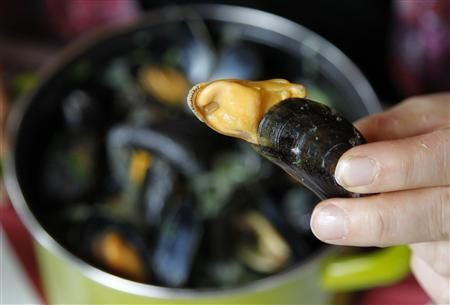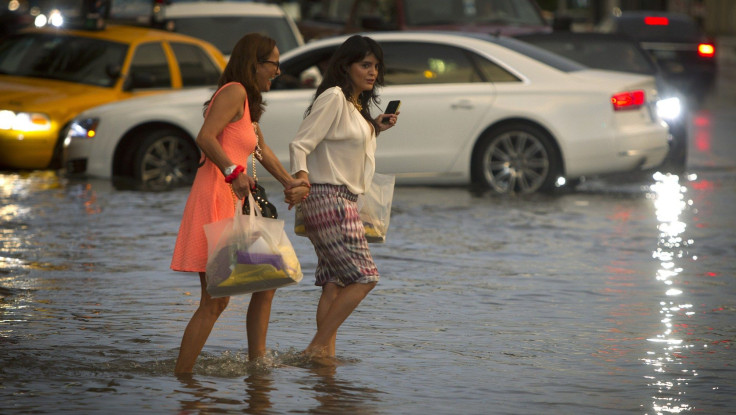California droughts have been tied to anthropogenic climate change, while the Department of Defense plots out what global warming means for national defense. As Congress and the media treat global warming like an ongoing debate, policymakers and private entities (even oil and gas companies) are already factoring global warming projections into their plans for the future. Ever since scientists moved beyond the question of global warming’s existence they’ve been producing research that could prove invaluable in preparing society for climate change damage.
Meanwhile, Florida Governor Rick Scott has banned the terms “climate change” and “global warming” from the state’s Department of Environmental Protection (DEP) reports and emails. While the Miami Herald’s explosive story has been mostly portrayed as just more fodder for the culture war, recent science has demonstrated just how uniquely dangerous poor global warming policy could be for Florida. Here’s just some of the research Florida will lose out on, damaging the state’s ability to mitigate the effects of global warming.
Sorry Rick Scott, but banning terms like "climate change" won't change the facts. Fight back → http://t.co/RkgdneJLM8 pic.twitter.com/H8IqXC1G0T
- FL Democratic Party (@FlaDems) March 9, 2015How To Save All the Tasty Mussels from Ocean Acidification

A paper in Nature Climate Change, an academic journal from the Nature Publishing Group most famous for the multidisciplinary Nature, lays out the potential impact of one of global warming’s most destructive side-effects: ocean acidification. The paper, Vulnerability and adaptation of US shellfisheries to ocean acidification, provides a “spatially explicit, multidisciplinary vulnerability analysis of coastal human communities” to help “prioritize societal responses to ocean acidification.” In other words, the paper lays out what Gulf Coast counties are most in danger from the global warming damage to mollusc harvests and discusses ways to minimize the damage.
Seems like it could be a pretty useful paper for Florida coastal communities with shellfishing economies…
What’s Going to Happen to Florida Beaches

Tourism is nearly 12 percent of the Florida economy. While Disney World is pretty cool, a lot of that figure has to do with its 1,300 miles of beach. So what happens when rising sea levels and higher storm surges sucks away all that pristine, white sand? Don’t worry, the American Society of Civil Engineers is on it. So is the U.S. Army Corps of Engineers.
It sounds implausible that Scott’s proclamation would block Florida agencies from prepping coastlines for global warming… until you see the official climate change policy paper developed by the Florida Oceans and Coastal Council. The 2010 title for the report was Climate Change and Sea-Level Rise in Florida: An Update on the effects of Climate Change on Florida’s Ocean & Coastal Resources. The title of the most recent iteration of the report? Oh wait, there hasn’t been one since Scott took office.
Freshwater Troubles

While Florida will be devastated by rising ocean levels and more dangerous storms, global warming will also damage the fragile freshwater ecosystem comprising the Florida wetlands. It turns out that not only are wetlands a great setting for airboat chases and Powers Boothe action movies, but are also home to a bunch of sensitive species. A report from the National Wildlife Federation states that 25 species that could be imperiled.
As with other areas where global warming and policy meet, science has some useful tools for Florida state agencies. Here’s a paper that outlines how to evaluate individual species’ vulnerability to climate change. The Awwa Research Foundation guides municipal water providers through the climate change to come.
The Real Damage
Should researchers just keep “climate change” out of the title so Florida officials can discuss this data openly?
Scott banning discussion of climate change and global warming for Florida state employees is bad politics, as the Florida Democrats aren’t hesitating to remind us.
Check out @BillDaytoons' updated cartoon, after report reveals @FLGovScott banned terms like "climate change" → pic.twitter.com/Z3pDWJSNZO
- FL Democratic Party (@FlaDems) March 9, 2015However, the real damage will be the chilling effect on dissemination of up-to-date science in the climate change field. While TV news is consumed with a general debate, scientists have moved on to the specifics of our warmer future. Scott and other special-interests would like us to believe that data on climate change remains sketchy, even speculative, but this obscures a wealth of data that could go a long way toward saving Florida. Hopefully they’ll be allowed to read it in time.


















